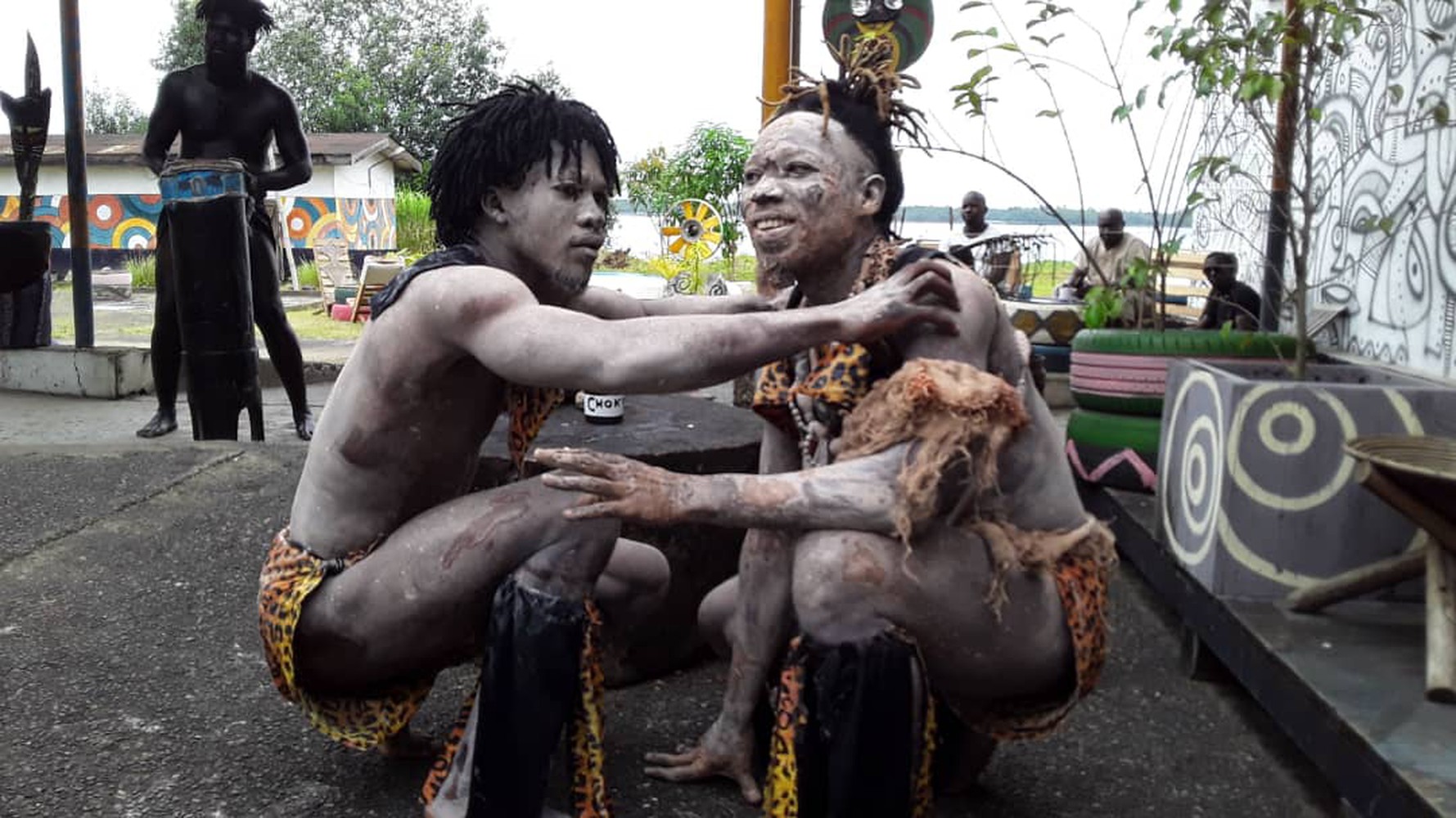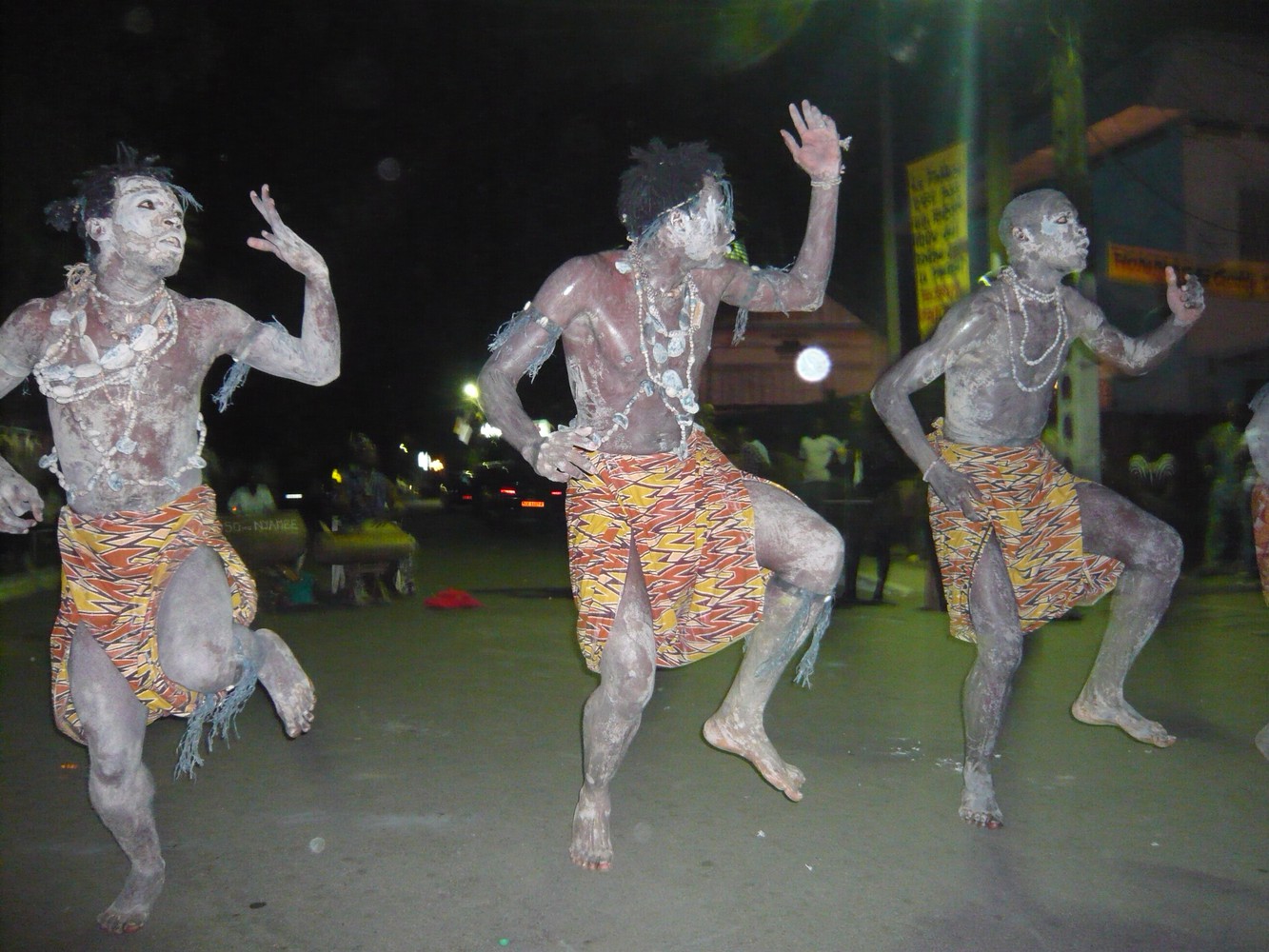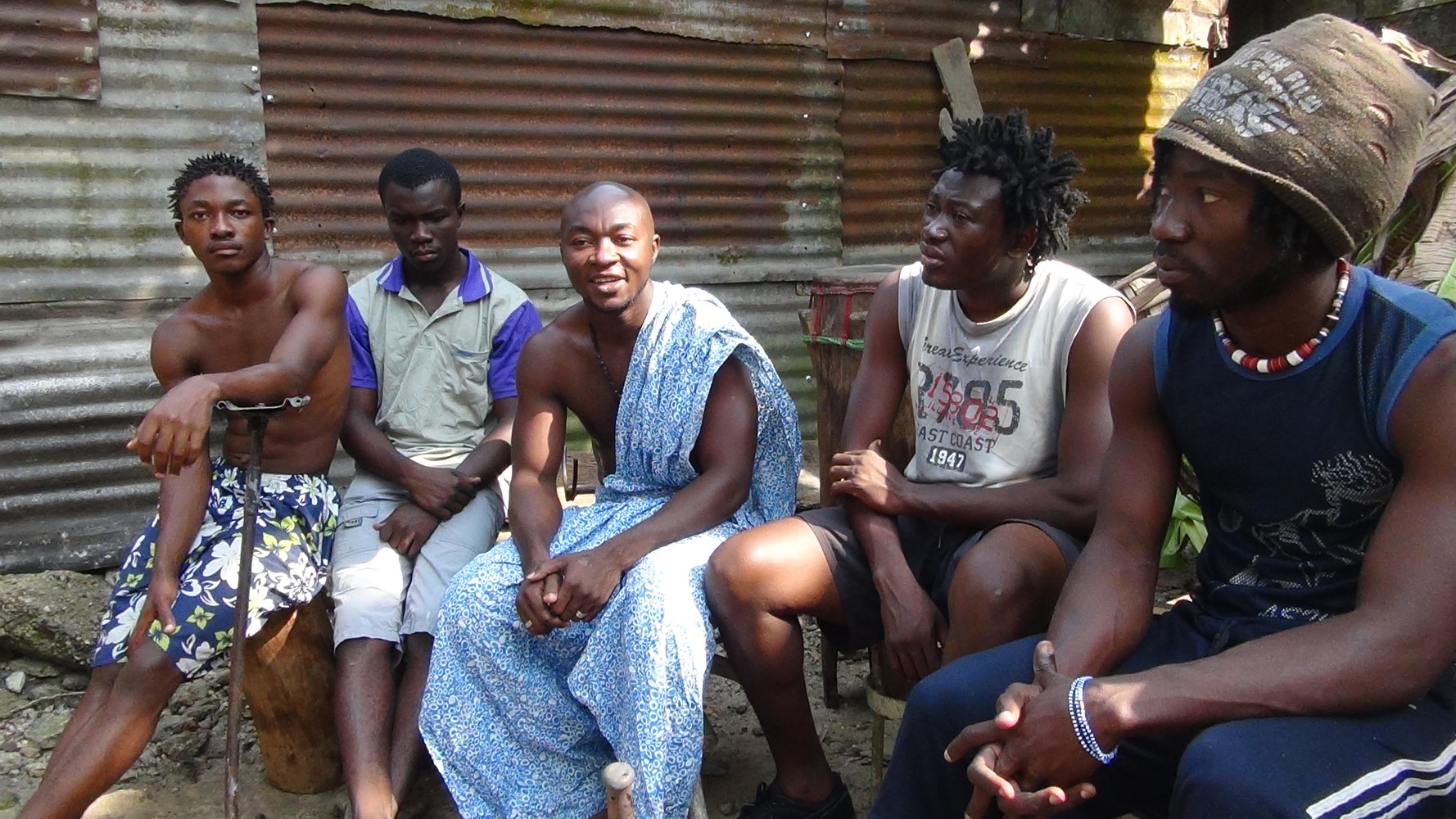Ce documentaire a pour point de départ une recherche doctorale sur la place de la culture dans les enjeux du gouvernement urbain à travers l’étude des processus de patrimonialisation dans la ville de Douala au Cameroun. Le patrimoine y fait l’objet de réinstrumentalisation par différents acteurs cherchant à valoriser la mémoire de groupes. Dans le même temps, l’histoire nationale de la lutte pour l’indépendance du pays est occultée et sa narration est interdite dans l’espace public. Le film documentaire Kunde interroge la place de certains artistes qui œuvrent à faire réémerger la mémoire de cette période de construction nationale, à l’instar du groupe de musiciens et de danseurs Kunde, accompagné par l’artiste plasticien et scénographe Stéphane Eloundou. De villages en villes, les artistes travaillent à récolter et à retransmettre une mémoire collective sous la forme d’une réinterprétation artistique contemporaine. Coréalisé avec une communauté d’artistes, le documentaire Kunde propose une argumentation scientifique selon laquelle l’art contemporain permet, en parallèle de moments de résurgences de la mémoire et de catharsis forts, de produire un véritable récit de fondation pour les populations.
Maïa Ghattas est née en 1988. Docteure en géographie de l’Université Paris Panthéon-Sorbonne, Maïa Ghattas est spécialiste du patrimoine à Douala. Dès ses débuts, sa recherche incorpore l’outil vidéo, et elle réalise Racines au bord du fleuve avec la collaboration de l’artiste Stéphane Eloundou et le soutien de Bernard Surugue de la Fondation Jean Rouch. Elle est lauréate de la Fondation pour la Vocation qui encourage la dimension filmée et participative de sa recherche-action. Elle accompagne des festivals d’art à Douala et participe à des travaux de recherche sur le patrimoine dans les villes du Sud.
Production : Le Fresnoy, Studio national des arts contemporains



